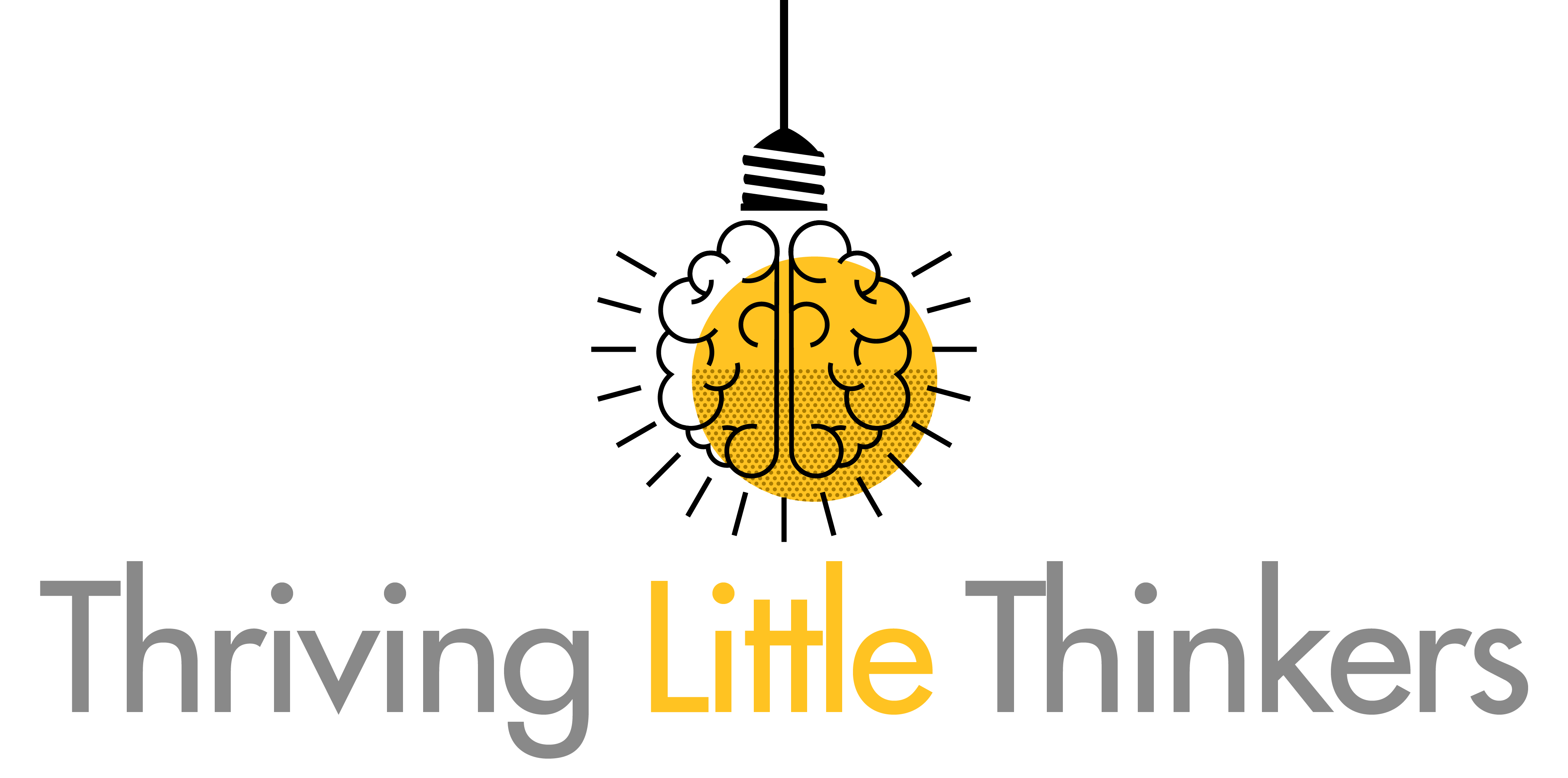The mission of Thriving Little Thinkers is to share low cost and high impact tips that help your child learn to think and set up a foundation for future success.
As parents raising our children in an increasingly complex (and sometimes crazy) world, we want our children to survive and thrive. We want to equip them to succeed as independent adults. We want them to engage in meaningful work and build a supportive community.
To succeed, our children must THINK. Our children must be able to use their brains to gather information, evaluate, make decisions, set goals, and connect with others.
I believe it is primarily our job as parents to teach and train these crucial skills to our children. It is our job to teach our children how to think. However, it is easy to become…
overwhelmed by mountains of available resources
discouraged by the complexity of current research evidence, or
frustrated with conflicting information.
As a busy parent you might ask yourself, “Do I have the time it takes to teach my kids how to think? Do I have the right resources? Do I understand how to do this? Can I do this?” The answer to these questions is yes!
You can teach your child to think, on any budget, with everyday interactions that are simple, informal, and intentional.
At Thriving Little Thinkers you will NOT find topics of discipline, crisis and trauma, or neurodivergence (autism spectrum disorder, dyslexia, attention deficit disorder, etc.). There are wonderful experts in those areas to help you.
You CAN expect low cost high impact resources in the areas of brain basics, academic thinking, and critical thinking. These may look like practical action steps, brain health tips, book recommendations, research highlights, and more.
Here’s a quick look at content you might find here at Thriving Little Thinkers:
| Topic | Content |
| Brain Basics | Brain health and function, environments for best brain performance, building basic thinking skills (attention, executive function, resilience, memory, growth mindset), learning styles |
| Academic thinking Accumulation of facts and knowledge | Literacy, numeracy, education philosophies and approaches (including our homeschooling experience), practical teaching tips |
| Critical thinking Moving beyond facts and knowledge to thoughtfully evaluate an idea, develop questions, reflect on different arguments, and develop a reasonable conclusion | Evaluating information, the power of questions, experiential learning, making wise decisions, awareness of your thoughts (i.e. metacognition) |
CLICK HERE to sign up for the free monthly newsletter to receive exclusive brain based tips.
If you have questions, topics you would like to see, or feedback please email [email protected]. We look forward to hearing from you!




